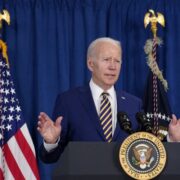Nigerian-Bajan producer wants to come home, build, partner Loop Barbados
Black Immigrant Daily News
Unbeknownst to many, Nigerian actor, producer, executive producer and entrepreneur Nwakaego Boyo, familiarly called Ego, spent a good chunk of her childhood living in Barbados because her mum is Bajan. So, technically and genetically, she is Nigerian-Barbadian.
Ego played Anne Haatrope in the popular early 90s soap – Checkmate, and today, she is a mother and the founder and Managing Director of Temple Productions, Temple films and Temple Studio.
the dream for Temple started on Temple Road
Loop caught up with Ego on this Good News Day, November 10. When we reached out to the producer, she was so warm and open to the interview, she said ‘yes’ without hesitation.
Loop: How did you get started with acting?
Ego: I have always had an interest in acting, but I got started professionally after my degree in Theatre Arts.
I had the opportunity to sit down with a writer and producer — the late Amaka Igwe and after a reading, she offered me a role as the lead character in the series, Checkmate. Checkmate was a television series that was on air nationally in Nigeria from 1991 to 1995.
Loop: What led to the creation of Temple Productions and where did the name come from?
Ego: I created Temple Productions because I wanted to have the opportunity to make films that focused on subjects and themes that I liked, content that was of interest to me.
The name, Temple Productions, came from the street that I lived on for most of my childhood and early 20’s. (Temple Road in Lagos). The story of the company started there. It was where my childhood friend and I, came up with many stories for films and series that we wanted to make. Now that I think back on this, I smile because we were so young, optimistic and full of verve.
To put it simply, the dream for Temple started on Temple Road and it became the natural name for my company.
I lived in Barbados from 1968 to 1971. I was 10 days old when I left Nigeria with my mother and my sister because of the Biafran war
Loop: What has been the biggest challenge and success of your production company since you started it back in 1996?
Ego: The biggest challenge has been raising financing for our projects.
There isn’t a very formal structure for raising funds, so like many creatives, one resorts to funding from friends, family, one’s own resources, NGOs (non-governmental organisations), and if you have the opportunity, corporate organizations.
My greatest professional successes are yet to come. I’ve had varying degrees of success though — the films that we’ve worked on, the stories that I’ve been passionate about and have been able to bring to the screen, the great film professionals and people I have worked with, the awards that our films have won, I am grateful for all of that but I am definitely looking forward to more.
Loop: How do you juggle working and motherhood?
Ego: The age old question! Juggling work and motherhood at the time when my children were younger was a bit of a challenge, but I had great support and I’m thankful for that.
My husband was and is incredibly supportive, and that partnership raising our children helped a great deal to make it easier. I also had my two mums and sisters who I depended on and who were and still are very supportive.
Obviously there were times when I had some mom-guilt about not being there enough for a play, or homework or not being with my children at particular times, but I always tried to make up for those times.
When I could and when they were younger, I took my children with me to work. Luckily I had a job that made it possible for me to do that.
Loop: What do you remember of your childhood years in Barbados? And what is the one thing you remember about Barbados?
Ego: Not very much to be honest. I lived in Barbados from 1968 to 1971. I was 10 days old when I left Nigeria with my mother and my sister because of the Biafran war (Nigerian Civil War). We left on one of the Red Cross planes and flew to my mother’s home in Barbados.
We lived there for three years and a bit, until the war ended, and then we returned to Nigeria. I don’t remember very much, I was quite young. I lived with my mum, my sister and my grandparents, and we had a whole group of uncles and aunts on my mother’s side and I remember being happy running around and singing songs with my Grandma. By all accounts, it was a wonderful idyllic childhood.
Founder of Temple Productions, film maker Ego Boyo
Loop: If you had to compare Barbados and Nigeria, what’s a food or dish that you find similar or think we share?
Ego: Okra! Barbados has cou cou and okra, in Nigeria we use it to make a soup. (See video at the top of this article*)
Loop: Do you see yourself making a home in Barbados one day, perhaps when you retire?
Ego: I definitely see myself living in Barbados at some point.
I would love to buy a home and live on the beach. A few more films to make and see how we can make that happen. I love the vibe on the island – I love how gentle and easy it is to just be. I have quite a lot of family still living in Barbados. It is always lovely to see them and catch up. I was there in August 2021, and had hoped to go back this year but it did not pan out.
Ego Boyo at the beach in Barbados
I have always loved the work of Denzel Washington, Viola Davis, Meryl Streep, Idris Elba, Delroy Lindo, Hugh Grant, Regina King, Philicia Rashad, Issa Rae
Loop: Let’s talk about the concept behind your creations, the movies Ghost and the House of Truth, especially with the subject of girl trafficking being a global issue. What led you to depict this topic in film?
Ego: The film “The Ghost and The House of Truth” came from a script brought to my attention by the director of the film, Akin Omotoso – who came across it in South Africa and suggested it to me.
The script was part of a project in South Africa. After a few years we acquired the script, and after a number of changes, setting it in Nigeria, we decided to go ahead and make the film.
For me the idea of reconciliation between victims and perpetrators piqued my interest. I wanted to learn more about how that sort of situation could work and also in instances where people give into despair, how they got to that point and what the turnaround can be. I honestly just wanted to explore that critically and to give audiences the opportunity to see that on screen.
Loop: Is working with Bollywood or Hollywood stars a dream of yours? Is there any particular actor or actress you would love to work with?
Ego: Working with actors from any other parts of the world is definitely a dream of mine. I embrace the idea of working with people who have a completely different experience from mine. I have always loved the work of Denzel Washington, Viola Davis, Meryl Streep, Idris Elba, Delroy Lindo, Hugh Grant, Regina King, Philicia Rashad, Issa Rae, off the top of my head, these are the people I would love to work with.
We are also looking into possibly working in Barbados
Loop: The concept of the Silent Experiment Film was novel. Did you expect the success that your film A Hotel Called Memory garnered?
Ego: It was actually a very short script, it was something like 12 pages. The concept behind the film was the opportunity to have actors deliver convincingly to an audience without uttering a word. When you look at the history of film, a lot of films started out as silent films before the talkies.
We wanted to see just how we could push the boundaries using silence and sound effects to convey the message of the story. We wanted to see if an audience would experience the film or embrace the film almost in the same way as they would a film with dialogue.
I could not have foreseen the success that it had, even within a niche audience. I was pleasantly surprised at the reception to the film and even the critics who watched it and were very positive and forward thinking in their reviews.
I hope that an even larger number of people will come to understand and appreciate experimental filmmaking.
It is still my hope that people can see beyond the films that they regularly enjoy and open themselves to experiences with different genres and different experimental films.
Loop: What’s next for you and Temple Productions?
Ego: We are currently working on a slate of feature films, and our plan is to make two films in 2023.
We are also looking into possibly working in Barbados, to see what partnership opportunities and collaborations are open to us there. I am very happy to say that exciting times are ahead and I am looking forward to everything working out.
NewsAmericasNow.com







Leave a Reply
Want to join the discussion?Feel free to contribute!